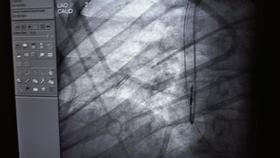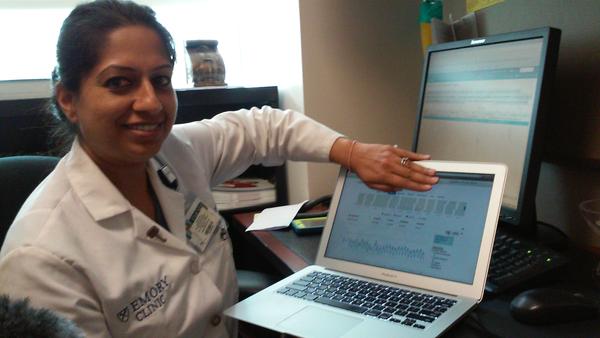New Tool Allows Doctors To Manage Heart Failure Remotely
Doctors at Emory are now using sensors to remotely monitor and manage heart failure.
The device is the size of a paperclip. It’s placed in the heart and sends emails with pressure readings directly to doctors.
So far, there are only four patients in Atlanta who have the CardioMEMS device in their heart.
It measures the pressure inside the pulmonary artery, giving doctors more and better information. Currently, doctors rely on symptoms and changes in weight and blood pressure to prescribe medication.
Dr. Divya Gupta, a cardiologist at Emory Healthcare, says this is a big deal.
“Because we actually have real-time values, it’s not a guessing game anymore,” Gupta says.

“A patient will probably do it at night and so I’ll get an email and then we’ll notify the patient to go ahead and adjust their therapies accordingly,” Gupta says.
Gupta says the device is part of a growing trend in personalized treatment, which she calls “the first step in the future of medicine.”
“The purpose of this device is to try to reduce hospital admissions for these patients. Because we get these real-time numbers, we can actually assess what the pressures are for the patient and adjust the patient’s medications on a day-to-day basis.”
A clinical trial of the device with New York Heart Association patients found a 28 percent reduction in heart failure hospitalizations in six months.
9(MDAxODM0MDY4MDEyMTY4NDA3MzI3YjkzMw004))







